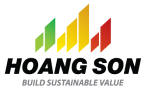At the end of May 2021, the EPH subsidiary EP Power Europe (EPPE) acquired STEAG Power Minerals, which will in future trade under the name of EP Power Minerals GmbH.
For EP Power Minerals, the takeover opens up a host of new opportunities: The company can now drive forward its innovations at high speed, while at the same time ensuring sustainable security of supply for its customers. And EPH also benefits: The energy supplier is further expanding its sustainable development thanks to the environmentally friendly products and services from EP Power Minerals.
Tomáš Novotný (Member of the Board of EPPE) and Andreas Hugot (Managing Director of EP Power Minerals) explain in an interview what this means in detail.
How does EP Power Europe contribute to the sustainability strategy of the EPH Group?
Tomáš Novotný: Our sustainability strategy incorporates the goal of greater climate friendliness, achieved by taking effective, meaningful action. We do not want to shift problems, but actively contribute to solving them. The acquisition of EP Power Minerals enables us to reduce the EPH Group’s carbon emissions while maintaining the flexibility of our plants and the reliability of our power supply. The processing of fly ash makes a significant contribution to reducing environmental impact, which fits in with EPH’s overall sustainability strategy.
In addition, the integration of EP Power Minerals has an economic impact on our organization: With its three business units, EP Power Minerals brings valuable new technologies and areas of expertise to our holding company. By actively promoting their development, we are setting the course for significant growth together.
Can you give us an insight into these growth drivers?
Andreas Hugot: Our company has always been notable for outstanding service quality and problem-solving skills – and that is where we will position ourselves even better in the future: Under the umbrella of EPH, we will systematically broaden the internationalization of our three business divisions Power Plant By-Products, Blasting Abrasives and Waste & Recycling, which has already begun. Asia will be a focal point of our development. With intelligent logistics concepts we will optimally harmonize the needs of the power and construction industries and thus create synergies on all sides.
Moreover, we are continuously modernizing our portfolio of materials: For example, we are currently working on an alternative for fly ash that is derived from a natural raw material and will help with decarbonization of the construction industry. In the field of blasting abrasives we are also pressing ahead to develop new opportunities. For example, lava sand can replace the finite resource of coal slag. Just like coal slag, this raw material is an aluminum silicate. We are also future-proofing the Waste & Recycling division with benchmark technologies that are in demand worldwide.
Security of supply is very important to customers of EP Power Minerals. Will anything change here as a result of Power Minerals leaving the STEAG Group?
Andreas Hugot: Our customers don’t have anything to worry about. We have always responded with foresight to the rapid and sustained processes of change on the energy market. Thanks to long-term contracts and a rapidly growing network, we are very well positioned to secure the accustomed quality of supply in the long term. And the affiliation with EPH as well as the planned internationalization will have a further positive impact on security of supply. EP Power Minerals will play a key role worldwide in the recycling of by-products from power plants and steelworks. In addition, we will continue to promote the recycling of by-products that have already been depositioned – urban mining is the keyword here. We want to offer our customers innovative solutions that compete in quality with tried and tested products, for example natural pozzolans from our own mine in Iceland or imported additives from our international network.
Tomáš Novotný: Even though EPH’s focus is on carbon-free and low-carbon power generation, lignite and hard coal will continue to play an important role in the energy mix of various markets in the medium term, in order to satisfy the steadily growing demand for energy and electricity. Currently, about 17 % of the electricity generated by EPH still comes from hard coal or lignite-fired power plants, for instance in Germany and Eastern Europe. We will make by-products such as fly ash and FGD gypsum available to EP Power Minerals – a classic win-win situation.
Andreas Hugot: Of course, all the contractual relationships our customers have had with STEAG Power Minerals GmbH so far will continue unchanged with EP Power Minerals GmbH and its subsidiaries. We are looking forward to a partnership and dialog in mutual confidence and trust!



